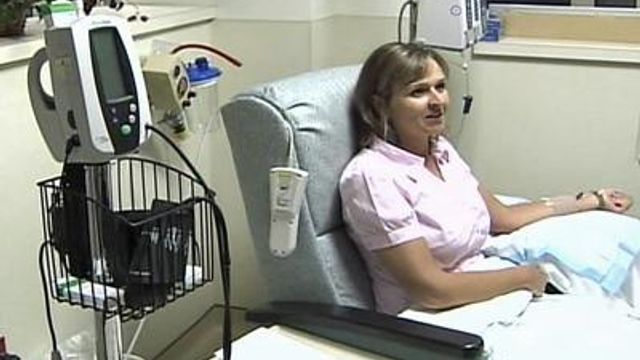Duke researchers study breast cancer in young women
Younger women with breast cancer tend to have a more aggressive form of the disease than older women. Now, Duke researchers say they believe they understand why.
Posted — UpdatedTheir discovery may help improve cancer therapies and spare women the effects of more aggressive treatments.
Last year, Lalania Hall, 36, married with five sons, discovered she had stage four breast cancer. Having once served in the Army as an E4 specialist in the 10th Mountain Division Signal Corp in New York, Hall said she knew the best way to start the fight for her life.
"You can't really fight your enemy until you know who your enemy is, and that's always in the back of my mind,” she said.
The enemy for young breast cancer patients like Hall is a more aggressive cancer that may not be as responsive to treatments that work for women over age 45. In addition, these treatments may lead to infertility and put them at greater risk of other health problems.
"What our study demonstrated was that breast cancer arising in young women really are driven by a number of factors, not just hormones and not just genetics,” said Breast Oncologist Dr. Kim Blackwell, who lead a study with Duke's Comprehensive Cancer Center and the Institute for Genome Sciences and Policy.
The study is published in the July 10 Journal of Clinical Oncology and was funded by the National Cancer Institute.
The research found tumors in young women share unique sets of genes not present in older women. The genes regulate things like immune function, oxygen supply and mutations that are known to be related to breast cancer.
Blackwell says the standard, more aggressive therapies may not be the best approach for younger women.
"But utilizing targeted therapies and trying to understand their specific biologic features could help us design better therapies,” Blackwell said.
That's helping Hall fight her enemy.
"I believe that the medications that I'm on are more targeting my particular cancer,” she said.
• Credits
Copyright 2024 by Capitol Broadcasting Company. All rights reserved. This material may not be published, broadcast, rewritten or redistributed.





